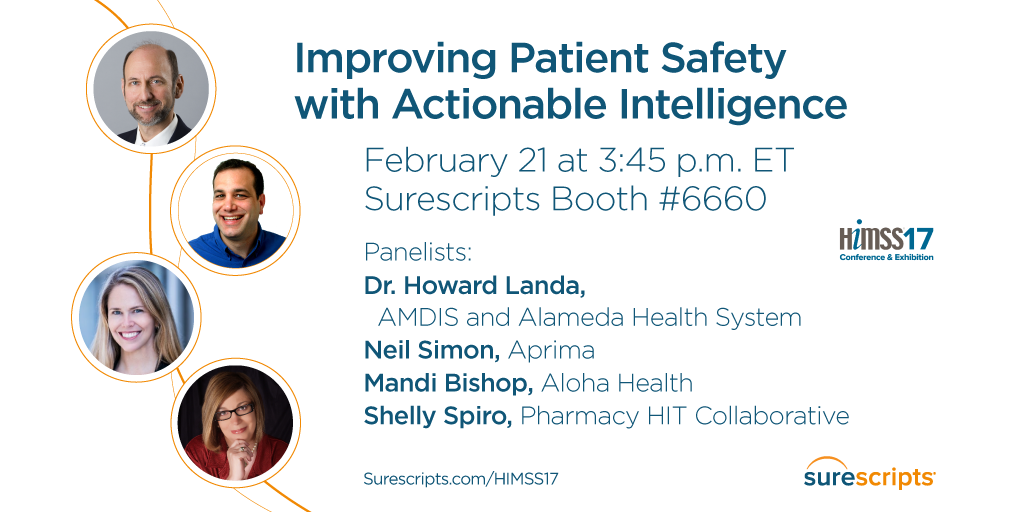Patient safety is the foundation of effective healthcare, but information gaps ranging from inaccessible medical records to incomplete medication histories continue to plague the industry. These inconsistencies are inefficient, frustrate already burdened providers and negatively impact patients. According to The Atlantic, the U.S. spends $750 billion per year on unnecessary and inefficient healthcare services.
Improving the accuracy and efficiency of e-prescribing is key to improving patient care and safety. A recent report published this month in the Journal of the American Medical Association by the RAND Corporation, noted that not only does e-prescribing reduces the number of illegible prescriptions but also helps address and possibly reduce medical errors through integrated tools that provide critical data and information on allergies, drug interactions and dosing.
In today’s value-based care environment, exchanging data between systems and providers isn’t enough. Clinicians need actionable intelligence, data that is both comprehensive and accurate, to support their care decisions. What’s more, when actionable intelligence is delivered to EHRs via a trusted network, providers are more likely to get the patient information they need, when they need it.
The Surescripts 2016 Connected Care and the Patient Experience survey found that, like providers, patients want comprehensive data to be readily available. According to the survey, 90 percent of patients believe their doctors would be less likely to prescribe incorrect medications if they had more complete information. In addition, 40 percent of patients are less likely to visit a doctor who does not have the ability to process prescriptions electronically.
I’m looking forward to moderating the panel discussion Surescripts is hosting at HIMSS17 entitled, “Improving Patient Safety with Actionable Intelligence.” It will take place on Tuesday, February 21 at 3:45 p.m. EST at Surescripts booth #6660. Health IT practitioners will discuss how data quality can be optimized to improve patient safety. Panelists include:
- Mandi Bishop, Chief Evangelist and cofounder, Aloha Health
- Dr. Howard Landa, Vice Chairman, AMDIS and Chief Medical Information Officer, Alameda Health System
- Neil Simon, Chief Operating Officer, Aprima
- Shelly Spiro, RPh, Executive Director, Pharmacy HIT Collaborative
For more information on HIMSS17 and our presence at the event, visit himssconference.org and check out the Surescripts blog. Be sure to follow the conversation on Twitter via the @Surescripts handle and #HIMSS17 hashtag.



 Dean Riggott Photography
Surescripts
Dean Riggott Photography
Surescripts